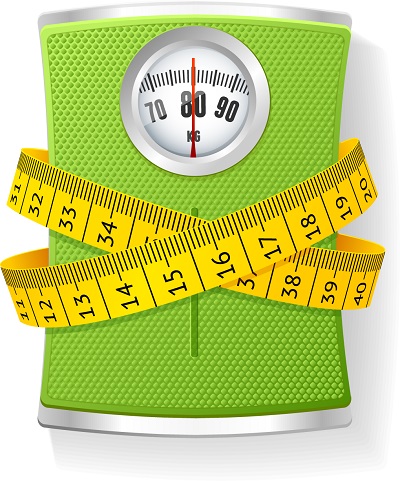If your mobility starts to deteriorate, achieving a healthy weight becomes more important than ever, but doing it is no easy matter.
Carrying surplus pounds puts extra strain on the weight-bearing joints, such as hips, knees and ankles. If you already have problems with those joints, perhaps through arthritis or another musculoskeletal condition, then losing excess weight will help to ease the pain and discomfort and improve your general mobility.
 Losing weight boils down to taking in fewer calories each day than you are burning up through your daily activities. If your body can’t get the calories it needs from the food you’re eating, then it will take them instead from its reserves of body fat. Using up those reserves on a regular basis and not replenishing them means you will lose weight.
Losing weight boils down to taking in fewer calories each day than you are burning up through your daily activities. If your body can’t get the calories it needs from the food you’re eating, then it will take them instead from its reserves of body fat. Using up those reserves on a regular basis and not replenishing them means you will lose weight.
Sounds easy doesn’t it? But if you’ve ever struggled with being overweight or obese. You’ll know it’s anything but easy. The difficulty is amplified if you have restricted mobility. It means you’re likely to ‘burn’ fewer calories through moving around, or actively exercising, so you need to eat even less. Mobility problems can also leave you feeling down or depressed, and many people seek to lift their mood with the ‘quick fix’ of comfort eating, which in the long-term only makes the problem worse.
Losing weight is never easy, but it’s not impossible, and if your mobility is at stake it could be essential. Your GP is a good place to start in finding help, advice and support in losing weight. There’s also a lot of useful information online, for example, there’s a free and straightforward weight loss guide on the NHS Choices website.
Most people find that losing weight is easier if you don’t do it alone. Groups such as Weight Watchers or Slimming World provide a wealth of advice and information, but perhaps more importantly, a supportive and encouraging environment where you’ll meet other people with the same goals as you. Such groups often have their own methods of monitoring calorie intake, such as “points” or “syns”, but whether you use these or just count your daily calories, it’s important not to underestimate.
Many people trying to lose weight become disheartened or even give up if they don’t make the progress they hope for and expect – this is another time when the ongoing support of a weight loss peer group can prove invaluable. Usually the reason for disappointment is that people are still consuming more calories than they think they are.
According to recent analysis of data from the Office of National Statistics, a third of people in the UK underestimate how many calories they take in from food and drink each day, and the scale of that underestimation is significant. The average recommended daily calorie intake for men is 2,500 and for women 2,000, although this will vary due to factors such as age and activity levels. A man doing eight hours physical work on a building site each day will obviously need and use up more calories than one sitting at an office desk.
The study of more than 4,000 people found that at least a third of men were claiming to eat around 2,000 calories per day, but actually consuming around 3,000 – a miscalculation which would likely make the difference between weight loss and weight gain. It was a similar story for women, with around a third claiming to eat 1,500 calories per day, but actually consuming around 2,500.
Many weight loss groups and programmes start off new members with an ‘eating diary’, asking them to accurately record what they are eating and drinking each day, including amounts and portion sizes. This gives a picture of their overall intake, and also leaves many people surprised at how many calories they are actually consuming, especially when all those easy-to-ignore snacks, treats and sugary drinks are included. On a positive note, it also highlights where simple changes can be made to achieve a steady, healthy weight loss.
Even if you ‘go it alone’, keeping an accurate record of what you eat (calories going in) and what activities you do (calories going out) will help you lose excess weight and, when you’ve lost it, find a healthy balance to keep it off longer term. The first days and weeks of a weight loss regime are the hardest, but your body will soon adapt and it will get easier.
The key is to be honest with yourself, because if you cheat you are only cheating yourself. And if you suffer a setback, don’t give up but realise it is only a setback, and one you can overcome. Achieving a healthy weight will pay real dividends whatever your age or circumstances, but even more so if being overweight is impacting negatively on your mobility.
